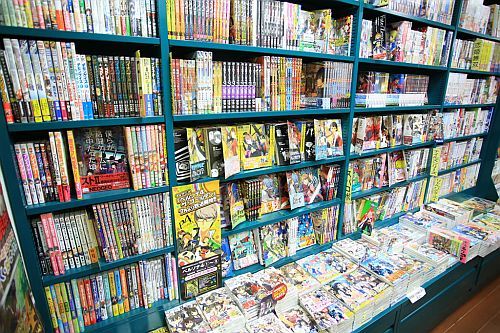For those who keep up with Japanese video games, you may have heard comments from a prominent Japanese video game producer about how a certain term labeling a video game genre felt discriminatory in his own eyes. A recent Polygon article about that term made me think about how the Western media has “othered” Japanese pop culture media for as long as I remembered.
The producer I’m talking about is Final Fantasy XIV and XVI producer, Naoki Yoshida (known as Yoshi-P to his fans). Back in February 2023 in an interview, Yoshi-P said that the term “JRPG” (short for “Japanese RPG”) was considered discriminatory to him and his peers in the Japanese video game industry. Polygon took a look at how Japanese RPGs and JRPGs became a thing in the late ‘90s (starting with Final Fantasy VII’s North American release in 1997) and how media outlets in the West never seemed to take them too seriously. Even worse, the outlets shoved Japanese developers into a sub-category they never asked to be a part of once Japanese RPG popularity started to wane in the mid-2000s’.
After reading the article, I actually thought about manga and its perception when I first started reading comics. When I first discovered what manga was back in 1995, I learned about Ghost in the Shell from an issue of Wizard Magazine (a North American-based magazine highly dedicated to Western comics). The first thing that came to mind when I read what Wizard wrote was that it had a cybersex scene and very adult in nature. My mind was somewhat blown since I was in 7th grade at the time. Now that I think about it, almost 30 years later, I wonder if Wizard was trying to say that Japanese creators were super-perverted compared to Western creators. I still remember a non-fan a friend of mine met at Otakon one year who asked “Isn’t anime sexual?” when inquiring bout anime.
With regards to manga, for most of its history in the overall comics world, it has been othered in the U.S. due to how successful it’s been in reaching out to “non-traditional” comics-reading audiences. Statements like “Oh, it’s just a fad!” and “Manga doesn’t have dedicated buyers (i.e. adults with disposable income) like Western comics does!” were thrown to discredit manga’s popularity. Christopher Butcher (of Mangasplaining/TCAF fame) talked about this in a 2015 article on his website, which still holds some truth today. Even though manga sales have peaked around the pre-vaccine COVID time period, they are steady today. New York Comic-Con in 2022 had a substantial anime/manga presence compared to years past. Anime and manga can’t be ignored any longer.
Yet I know that some things haven’t changed in industry recognition. I will use the Eisner Awards as an example. For those who don’t know, it’s a prestigious awards ceremony that happens around San Diego Comic-Con every year and honors the best in comics. However, their recognition of manga is spotty. There has been recent criticism towards the Eisner committee for recognizing only the “hot” manga creators (i.e. the ones with best-selling manga titles on book charts). The best example I can give is Junji Ito. A lot of his works are nominated despite there being better works worthy of recognition out there. There has been some criticism in the manga circle I’m in about how Eisner judges/representatives don’t seem to take the time to explore the greater breadth of what manga has to offer in its new golden age.
Of course, when awards ceremonies like the Academy Awards don’t really seem to care much about praising Japanese pop culture media, what hope is there, right?
Which brings me to a point that the Polygon article elaborates on the West’s insistence on particular views of Japan.
“It’s clear that the mainstream only courts a specific idea of Japan as being acceptable — often reinterpretations of feudal Japan, largely spanning from the 1500s to late 1800s, when the samurai were still part of Japanese society.“
I do notice that Japan is supposed to be this “quirky” and “weird” place with wild imagination. If somehow a Japanese title has themes common in Western media/culture, but lacks the exotic style Westerners prefer, it’s sometimes heavily ignored in the mainstream eye. I don’t know. What do you guys think?
Polygon does mention that we’re living in some really good times with regards to Japanese video games being popular again. Many fans, including myself, know that too well. I enjoyed gaming again due to the variety of Japanese-developed titles that came out since 2016 (the start of the Japanese video game industry revival). I see parallels in manga and anime reception too. All of Japanese pop culture media is celebrated overseas. Fans that consume all things Japanese are living through amazing times.
That doesn’t mean that it’s going to last forever. I do know at some point, Western media will find new ways to scrutinize Japanese media and our time in the spotlight will fade again. Some degree of othering will always happen due to human nature and I know that we can use that term for positive purposes. Manga is about how “others” that are different from the norm can become celebrated by the world. Reading this post about manga reminds me that comics of any kind can cover any topic imaginable and definitely be made for “other” people to read.
